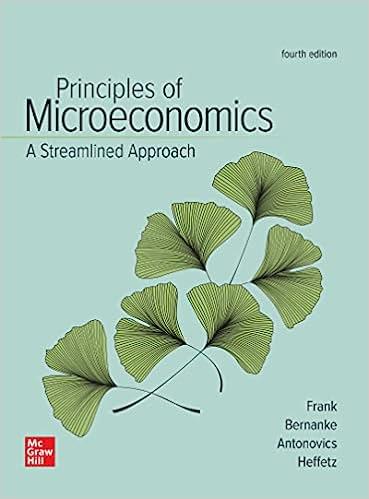Consider the following dating game, which has two players, A and B, and two strategies, to buy
Question:
Consider the following “dating game,” which has two players, A and B, and two strategies, to buy a movie ticket or a baseball ticket. The payoffs, given in points, are as shown in the matrix below. Note that the highest payoffs occur when both A and B attend the same event.
B Buy movie ticket Buy movie ticket Buy baseball ticket Buy baseball ticket A
0 for B 0 for A 3 for B 2 for A 1 for B 1 for A 2 for B 3 for A Assume that players A and B buy their tickets separately and simultaneously. Each must decide what to do knowing the available choices and payoffs but not what the other has actually chosen. Each player believes the other to be rational and self-interested.
(LO1, LO2, LO3)
a. Does either player have a dominant strategy?
b. How many potential equilibria are there? (Hint:
To see whether a given combination of strategies is an equilibrium, ask whether either player could get a higher payoff by changing his or her strategy.)
c. Is this game a prisoner’s dilemma? Explain.
d. Suppose player A gets to buy his or her ticket first.
Player B does not observe A’s choice but knows that A chose first. Player A knows that player B knows he or she chose first. What is the equilibrium outcome?
e. Suppose the situation is similar to part
d, except that player B chooses first. What is the equilibrium outcome?
Step by Step Answer:

Principles Of Microeconomics A Streamlined Approach
ISBN: 9781264058785
4th Edition
Authors: Robert H. Frank






